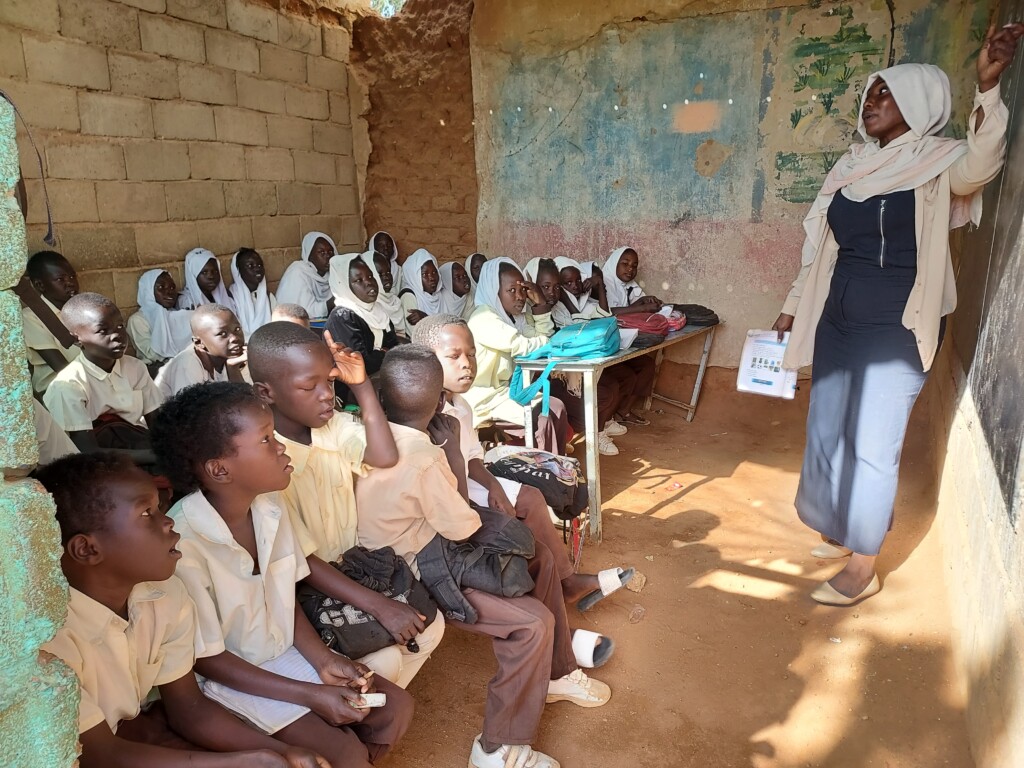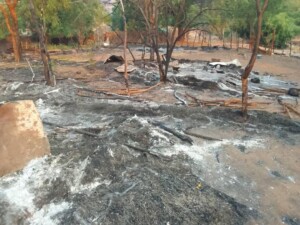Sudanese Teachers’ Committee rejects decision to return to schools in Khartoum in absence of security and services

A school class in one of the poor suburbs in Omdurman (Photo: RD)
The Sudanese Teachers’ Committee has voiced its disagreement with the Khartoum state government’s decision to reopen schools, saying that the move ignores the deteriorating security, health, and economic reality, and poses a direct threat to the lives of education workers and their families.
In recent days, the Khartoum state government issued a decision to cancel open leave of absence for workers or to submit requests for annual leave or leave without pay. State Governor Ahmed Osman said a number of ministries have begun their duties at their headquarters in Khartoum, including the General Secretariat of the State Government, the Ministries of Health, Finance, Culture and Information, the Ministry of Social Development, the Roads and Bridges Authority and the Rainbanks.
In a statement issued on Sunday, the Sudanese Teachers’ Committee explained that teachers were not absent from work of their own free will, but were forced by the war that broke out on April 15, 2023 AD to displace and take refuge. Their tragic circumstances have been exacerbated by being deprived of their salaries for more than a year, without any official explanation from the state, resulting in some dying of starvation or disease, displacing their families, and depriving their children of education.
Sami El Baqer, spokesman for the teachers’ committee, told Radio Dabanga that the return to schools, even if partially reversed, came without taking into account the most basic standards of job security and occupational safety. Many schools have been severely damaged by the war, and some have been turned into burial sites, without authorities examining these buildings engineering, moving the remains and sanitizing the facilities.
Deterioration of services
The committee also warned of the fragility of the health situation, and the continued outbreak of epidemics such as cholera, in the absence of any official announcement from the Ministry of Health regarding its control, which makes the decision a direct threat to the lives of teachers and students alike.
Basic services such as water, electricity, transportation and food are almost non-existent, making it almost impossible for teachers to return to their posts, he said. He also warned of the state of lawlessness, the proliferation of weapons, and the absence of effective intervention by the authorities to address the situation on the ground.
The committee also touched on post-war repercussions, such as the outbreak of rodents and stray animals due to the spread of corpses, which contributed to the deterioration of the environment around schools, something the state did not take into account before issuing its latest decision.
Requirements
The statement concluded by stressing that the return of teachers to their jobs must be preceded by basic steps, the most important of which is the payment of salaries, grants and accumulated bonuses, as it is an irreplaceable legitimate right to ensure a minimum level of living stability. The Committee also stressed that the decision is contrary to local labor laws and international conventions ratified by the Government of Sudan, foremost of which are the conventions of the International Labor Organization (ILO).
The committee warned that any measures based on this decision will be met with resistance at all union and legal levels, stressing that the issue of teachers’ salaries is a matter of life, and that providing a safe environment and occupational safety is an inalienable right.











 and then
and then